Today we remember and commit to something better
Today we remember and commit to something better
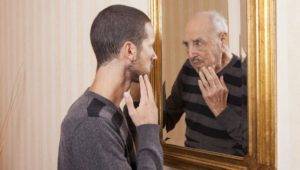 Like so many, I am frustrated. In large measure, I am frustrated with myself. It is me who needs the work. Privilege, whiteness, racist and similar words or phrases can be jingoistic, masquerading in a cloak of empathy. They really have no weight until I confront who I am with honesty and vulnerability. I have struggled with what I can only describe as our own hypocrisy; far too often we preach and we teach, but we do not fully live the Jewish values we espouse. How could this not be at the forefront of everything I do for as long as I have been doing it? What took me so long, why now? I think back at those interesting words at the beginning of Exodus: And God heard their cry and remembered the Covenant God made. What took God so long? There were 400 years of suffering and oppression. What took God so long?
Like so many, I am frustrated. In large measure, I am frustrated with myself. It is me who needs the work. Privilege, whiteness, racist and similar words or phrases can be jingoistic, masquerading in a cloak of empathy. They really have no weight until I confront who I am with honesty and vulnerability. I have struggled with what I can only describe as our own hypocrisy; far too often we preach and we teach, but we do not fully live the Jewish values we espouse. How could this not be at the forefront of everything I do for as long as I have been doing it? What took me so long, why now? I think back at those interesting words at the beginning of Exodus: And God heard their cry and remembered the Covenant God made. What took God so long? There were 400 years of suffering and oppression. What took God so long?
It does not assuage my guilt to take solace in the human time it took God. Despite knowing I cannot change the past, I struggle with how I affect the future. This only adds to the frustration of knowing I have not done enough to bring us farther along. And do I really believe in what I proclaim?
Do I have the fortitude and courage to look deep within and grapple with who I am and what I must do to change? Only then will I be whole enough to join in the battle that our society and humanity as a whole must wage to create the world I profess to believe in. Will I cross over or find contentment on this side in my narrow but for the most part comfortable space.
We have had opportunities before. We have moved forward, slowly, haltingly, stumbling often one step forward and two steps back. In actuality, we have lived with the opportunities to make change continuously. What makes this moment different? Will I be like Nachshon, wading deliberately into the unknown Sea of Reeds or be one of those longing for the land of Goshen, that narrow harsh place, whose evils are known but tempered by our thoughts of powerlessness?
Prescriptions are being bandied about. Some might be curative and others little more than a bandage. Everywhere there are now lists of things proposing changes ostensibly serving to right society’s wrongs. How could these lists be created so quickly? Seeing these in the immediate aftermath of George Floyd’s murder makes me wonder if the answers been known all along. This would imply either the problem is not that complicated or we did not have the strength to enact these prescriptions. We need to ask ourselves which it is. Or is the problem so deep and thorny as to render it all but impossible to unravel? And we have left the status quo because we are overwhelmed at the enormity of the issue. At this moment in time are we willing to find out? Will this time different from all of the other times? Am I up to the challenge?
Behar-Bechukotai
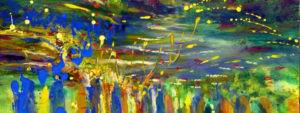
Have you ever taken a vacation?
Usually, it is for one of two reasons:
To see or experience something new, or to Rest and relax (and of course some of us combine these). Both are ways to recharge to have a reset, time away from the normal and challenging tasks of work to engage in shavat v’yinafash, resting and refreshing both the body and the soul.
This week׳s Torah Portion Parsha Behar-Bechukotai talks about a reset- The Shmita -a reset of the land. Every seven years we are supposed to stop tilling the soil to let the fields recharge and all people regardless of stature; resident, worker, and slave alike, even the animals, get to partake equally in what is there.
We let things lie dormant so they can be rejuvenated.
The land is recharged and also not uncoincidentally those who do the hard physical labor of farming are given a respite as well. We do this for seven cycles of seven years and then in the 50th year is the Jubilee. “And you shall sanctify the fiftieth year, and proclaim freedom for slaves throughout the land for all who live on it. It shall be a Jubilee for you, and you shall return each man to his property, and you shall return each man to his family.”(Lev 25:10)
What might we learn from such a giant reset?
Our tradition recognizes that there are imbalances in the system- imbalances inherent in all systems. Some people are more successful in acquiring things, in working skillfully or even artfully, some possess better business acumen, some are particularly adept in choosing the right parents perhaps. And then, there are those not so skilled. The Talmud extensively discusses the issue that “Batar Anya Azla Aniyuta,” or “poverty follows the poor” or that Poverty actually increases from being impoverished.
All societies naturally tend towards these proclivities, and it is up to us, those who can make a difference, to make a change. To reset society to align with our values and principles. Another example of such a reset is commemorated at this time in our calendar.
As we mark the 34th day of our trek to Sinai the story of Shimon Bar Yochai is also worth noting. A disciple of Rabbi Akiva, he and his son, Eleazar, fled to escape the Romans, living in a cave for 12 years. He emerged but instead of re-joining his community, he was disgusted by a perceived lack of piety by the people. Shimon’s eyes burned everything they saw to a cinder, field and man, alike. God’s messenger, The Bat Kol, sent him back to the cave for another year and he emerged an enlightened man dedicated to righteous living and scholarship, redeeming Tiberias and possibly laying the groundwork for writing the seminal book of Jewish Mysticism, the Zohar.
This is the charge of this week’s Parsha- for each of us individually to rededicate ourselves to serving the needs of our people compassionately and deliberately, fully committed to the sacred cause of living Jewishly if we are willing to take up the challenge.
When this health emergency is past, will you emerge hardened from the cave? Or will you emerge from this quarantine open and deeper in touch with the values that are there to guide you? Or, will you figuratively burn what you see to the ground by turning a blind eye towards the deep injustices and needs that exist, or instead, will you choose to engage in pursuing righteousness and Jewish values, treating the people with Tzedek and compassion?
Which path will you choose?
May you choose to walk the Jewish path
Cain Yehi Ratzon,
We still believe that there is a better place, a promised land, and the way there is through the wilderness. There is no way for us to get from here to there, except by joining hands, marching together. (Mishkan Tefillah, adapted)
If you can, be at the rally in New York this Sunday to express solidarity as a first step toward achieving the values that are at the center of Judaism and America. Together as the Jewish community of the United States with all others of goodwill, we will overcome forces of hatred and bigotry. There is much work to be done and miles to go before we sleep. Together we can get there.
Stopping by Woods on a Snowy Evening
By Robert Frost
Whose woods these are I think I know.
His house is in the village though;
He will not see me stopping here
To watch his woods fill up with snow.
My little horse must think it queer
To stop without a farmhouse near
Between the woods and frozen lake
The darkest evening of the year.
He gives his harness bells a shake
To ask if there is some mistake.
The only other sound’s the sweep
Of easy wind and downy flake.
The woods are lovely, dark and deep,
But I have promises to keep,
And miles to go before I sleep,
And miles to go before I sleep.
Shabbat Shalom
I, like so many others, have struggled with Abraham’s responses to God in the stories of Vayera. Why was our Patriarch eager to confront God and bargain to save Sodom and Gomorrah and then be so passively accepting of God’s command to kill Isaac? Abraham responds to what he heard, a message filtered by his own biases and his perception of God, the other in this relationship.
In the Akedah, God instructs Abraham in painful detail, “Take your son, your only son, the one that you love, Isaac, go to Moriah and offer him as a burnt offering.” God is carefully staking out Abraham’s test of faithfulness. There is no room for a conversation. The Akedah is so intense; it is almost impossible for Abraham to catch his breath, let alone say something in response. Although there is no conversation, the ensuing language makes it clear that the next three days, Abraham is thoroughly deliberate traveling to Mt. Moriah. Abraham cannot deliberate with God, but it is clear he is consumed in his mind by what is to come.
Sodom and Gomorrah were decidedly different. God deliberates about telling Abraham His plan, which included assessing the situation on the ground, framing an invitation to a conversation. Abraham joins in, and God encourages it by continuing to engage Despite the trepidation of arguing with the God of Justice about acting justly, Abraham bargains to lower the number of righteous needed to spare the city until he reaches what he perceives as the best he can do, 10- a minyan. The negotiating ends with the best deal Abraham believes he can achieve.
How we hear and understand something sets the table for how we respond to it. Why Abraham feels he has license to argue in one case and not in the other remains one of the mysteries of our text. But it is all too familiar territory for all of us. Each of us responds to what we think we have heard, rendering very different responses, even to the same person, based on the facts and our emotional and situation, among other factors.
What do we hear when another speaks? Have they spoken undeniable truth, or is it an invitation to engage to achieve a better understanding of each other? Knowing when to speak and when to be silent is among the more difficult decisions we make. Grappling with this issue is as hard for us as it was for Abraham. Our tradition encourages us to confront it.
The practice of Mussar works hard at getting us to understand the virtues, or middot, that drive both the person with whom we are in relationship and us. We learn that the successful relationship requires that we appreciate the middot are working on both of us so that it can be complicated. We often do not get it right, but we stand a better chance of engaging in meaningful dialogue when we try. Abraham’s inconsistent reactions to God is a lesson with a timeless message, certainly one that is pertinent to today. Torah is a profound understanding of the human condition. The issues Abraham and all the characters of our tradition confront are genuinely human issues, as relevant today as they were when first written down. Let’s try harder to listen better to understand each other.
Shabbat Shalom
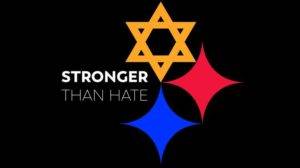 The tragic murder of 11 people one year ago in Pittsburgh is a harsh reminder that hatred is real and we are not always in control of events. Things often happen to us. As painful, hurtful, or even devastating as something can be, how we react is in our control. What is the life-lesson that we learn and how do we actively embrace that life lesson going forward?
The tragic murder of 11 people one year ago in Pittsburgh is a harsh reminder that hatred is real and we are not always in control of events. Things often happen to us. As painful, hurtful, or even devastating as something can be, how we react is in our control. What is the life-lesson that we learn and how do we actively embrace that life lesson going forward?
Do we react cynically or with an open, albeit wounded, heart? Can we forgive? Will this event haunt us holding us back, or compel us to move onward? What is the vision of the future we see that is shaped by what happened, what is the world we want to see, and how will we get there?
I struggle with an anger and pain that could be overwhelming, especially as one of the Rabbis initially deploying to Pittsburgh with the Red Cross in the immediate aftermath of the shooting. Our Jewish tradition helps me re-center myself. Here I can embrace the timeless values that understand the human condition and provide a framework for a just society where we all might live in peace, based on the idea that we should treat our neighbors as ourselves. But it is a hard climb up to that mountaintop.
This is the challenge of Pittsburgh. Our hearts ache for those lost as a result of violent Anti-Semitism. We take solace in the love of our neighbors and find strength standing shoulder to shoulder with other people of goodwill to continue to strive for the kind of just society we want America to be.
Our tradition is one of deeds. Our response to this tragedy needs to be more than a feeling. There are many ways to respond through civic involvement and community activism. Judaism requires that we belong to a community committed to promoting our values be it a synagogue, philanthropy, or civil rights group. The important thing is that you are compelled to respond with actions to live the values of our tradition and to build a better world. What will you do?
Zichronam Livracha and Shabbat Shalom.
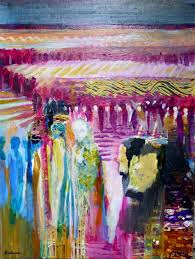
As I engaged with Parshat Korach this time around, I found myself asking an interesting question: If I were there, which side would I have been on?
With the benefits of Torah and hindsight, it is clear that Moses’ was the winning side of the argument. Moses did more than actually prevail, God had Korach and his followers swallowed by the earth. But up until the final moment, Korach was making a persuasive argument about the appropriate leaders of B’nai Israel. Would I have been swayed?
Korach makes a compelling case. He charges that Moses and Aaron have usurped power that rightfully does not belong to them. Now that the Hebrews are free, they should have right leaders, the Levites for the priestly matters and the descendants of Reuven as the true political leaders of the people. We believe that Korach had ulterior motives and saw the opportunity for personal power, but he made a cogent argument, on the surface at least, and many people were likely swayed. As uncomfortable as it might appear, initially there were likely good people on both sides. But just because an argument sounds good on the surface, does not mean it is acceptable without first digging deeper.
The return of leadership to Reuven is in keeping with the concept of primogeniture. And the return of the Levites is consistent with their status as the priestly class. But even before God stepped in placing Moses and Aaron as the leaders, we have seen primogeniture is not automatic and leadership is based on character and deeds before anointing takes place. Before anyone could ultimately align with Korach, a deeper understanding of Korach’s motives and the relationship to the Divine had to be probed. It was not enough that Korach was persuasive. It was not enough that Korach’s agenda aligned with our own. We are also obligated to think in terms larger than our own self-interest. In other words, we are responsible for determining what is right for ourselves and for the greater good and taking a stand toward making that possible.
The people were fearful. Moses ascended the mountain and the anxiety of a slave people feeling abandoned when he did not return was overwhelming. The mob mentality took over and Korach exploited that. Unfortunately, the people went astray. But that could not absolve them of the responsibility to return to rationality and make thoughtful correct choices. I too might have been swept up in the initial emotions in the moment, but then it would be incumbent on me to soberly reflect on whether I was indeed pursuing the right course. This is the burden of freedom.
But there is more to this story, and it gets even more interesting. There is actually a third side to the situation. What about the people who did not take sides? Usually, in arguments, there are the traditional two camps, but there is also a third group. This group remains uncommitted to either side, preferring instead to wait on the sidelines to see who actually wins. And then they throw in with the winning side, never losing and also never risking. These people are more insidious than the losing or wrong side Doing nothing is feckless at best, or likely even more conniving than Korach himself. Nechama Leibowitz’s commentary on Korach references our Sages condemning this kind of opportunistic behavior (Korach 3, Studies in BaMidbar).
Driven not by a belief in something but instead a desire to be on the winning side, to survive and thrive without ever risking anything. These people are more than rootless, they are not to be counted upon for loyalty or sacrifice for a greater good. These opportunists undermine any cause that requires a measure of devotion, as they are devoted only to themselves. They would be the voices that would undermine the report of the spies, they might be among the spies themselves, not appreciating the opportunity offered by Joshua and Caleb, only seeing the personal risk involved. In many ways, this group is the more dangerous one. Focused only on themselves, they fight for nothing. Sometimes it is apathy, sometimes it is selfishness, but it always keeps us from moving forward towards what could be, mired instead in the safety of being nameless in the crowd. Hoping to land on their feet, they are little more than mercenaries, fair weather friends who ultimately cannot be trusted to do anything other than enjoy the fruits of someone else’s labors.
At the end of the day, there was only one side-to align with Moses in service to the Divine. Today these issues confront us in sometimes subtle but often blatant ways. Determining who we are as a people and nation require taking an active and bold stand, championing our values, speaking truth to power and speaking truth to those desirous of power.
Which side are you on?
Rabbi David Levin is a second career rabbi. Trained at Hebrew Union College-Jewish Institute of Religion, Rabbi Levin’s rabbinate focuses on outreach to seekers of meaning, bringing Jewish Wisdom to their life journey. Rabbi Levin’s work is trans-denominational, embracing and drawing knowledge from all aspects of Judaism. He is a member of the CCAR (Reform Rabbinical Association), OHALA (Renewal Rabbinical Association), NAJC (Neshama, Association of Jewish Chaplains), a Fellow of Rabbis Without Borders, serves on the regional board of NIF (New Israel Fund), and is a volunteer on the Disaster Spiritual Care Team of the American Red Cross.
Rabbi Levin currently teaches subjects including Ethical Wills Re-imagined, Mussar at the Jack M. Barrack Hebrew Academy, Introduction to Judaism for the URJ, “Kavod v’Nichum, Understanding Jewish end-of-life rituals”, and the acclaimed series “L’Chaim, Jewish Wisdom for the End of Life Journey” with two esteemed rabbinic colleagues. Rabbi Levin officiates in complex lifecycle events including non-traditional burial and works with interfaith couples. Rabbi David leads interfaith trips to Israel through the CLAL Stand and See project. Rabbi Levin is the organizer of Death Café of Greater Philadelphia
Rabbi Levin is a teacher and speaker appearing nationally and is available to be with your congregation.
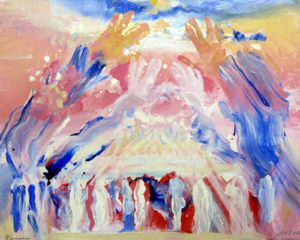
The Priestly Blessing is a message of hope in a troubled world. We have long wondered about the Priestly Blessing being placed in Parshat Naso. Many have posited it was out of place, belonging instead in Leviticus (9:22) when Aaron is told to bless the people. But I believe it is placed here purposefully as a message of assurance, to make sure we understand how important we are to each other and to the Almighty.
Naso contains a census of the Tribe of Gershon, the extraordinary stories of the Sotah, a test for the unfaithful wife, and the issues surrounding the intense vows of becoming a Nazirite. And only then do we read the Priestly Blessing; The three-line expansive blessing upon each of us that God protects us, is kind to us, and grants peace to us. It is actually the perfect response to the perplexing and difficult issues that preceded.
We are told we count. That was central in the previous Parsha, BeMidbar, and reiterated as the census to count the Gershonites. But then we are confronted with the Sotah and the Nazirite, as if to ask are there times when we do not count. We all struggle with life. We seek God’s blessings, we seek meaning, we seek good things, namely peace and a good life. But we find ourselves going off the rails. When this happens are we cut off from God’s blessing?
The Sotah is about accusations of infidelity. But in the absence of anything but circumstantial evidence, the magical test is administered by the Priest. The gravitas of this must be overwhelming. But even if a woman survived the test, would her husband fully welcome her home, without harboring some suspicions. Would trust ever be restored fully? Would others in the community maintain lingering doubts, rumors, and stories placing an indelible stain on the woman’s reputation?
Someone taking the vow of a Nazirite may do it for lofty purpose, but based on our understanding of the things that motivate such action, we see the wisdom of Gersonides’ analysis that, A person takes such a vow to silence the unhealthy turmoil inside a person arising from a physical desire that might lead one to sin. Does the person who needed to take the Nazirite vow feel rejuvenated or reborn when the vow is complete? Does the thing that required such focus continue to linger in their souls? Such impulses can extend beyond lust to other impulses that can plague us emotionally or spiritually.
The Priestly Blessing is deliberately and thoughtfully placed here to say we struggle and we continue to struggle. It comes at us from all angles. It is part of being human in a world that is often fraught and difficult. Each of us has a struggle, a demon, a bad action, a feeling of inadequacy. It is part of who we are as human beings.
The Priestly Blessing is a wish for wholeness, a wish for Peace in an unpeaceful world. The Priestly Blessing is a wish for Peace; it is our yearning that these struggles do not mire us in a life that feels dark or hopeless. It is the profound hope that God is there to love and protect us even when we feel we have strayed so far away that we are beyond the reach of even the Almighty’s loving protective wings of peace.
Hope remains. God is there. We are not alone.
May the Almighty Bless you and Protect you.
May the Almighty deal kindly and graciously with you.
May the Almighty bestow Divine favor upon you, granting you wholeness and peace.
Shabbat Shalom.
Rabbi David Levin is a second career rabbi. Trained at Hebrew Union College-Jewish Institute of Religion, Rabbi Levin’s rabbinate focuses on outreach to seekers of meaning, bringing Jewish Wisdom to their life journey. Rabbi Levin’s work is trans-denominational, embracing and drawing knowledge from all aspects of Judaism. He is a member of the CCAR (Reform Rabbinical Association), OHALA (Renewal Rabbinical Association), NAJC (Neshama, Association of Jewish Chaplains), a Fellow of Rabbis Without Borders, serves on the regional board of NIF (New Israel Fund), and is a volunteer on the Disaster Spiritual Care Team of the American Red Cross.
Rabbi Levin currently teaches The Ethical Will Re-Imagined, as well as Mussar at the Jack M. Barrack Hebrew Academy, Introduction to Judaism for the URJ, “Kavod v’Nichum, Understanding Jewish end-of-life rituals”, and the acclaimed series “L’Chaim, Jewish Wisdom for the End of Life Journey” with two esteemed rabbinic colleagues. Rabbi Levin officiates in complex lifecycle events including non-traditional burial and work with interfaith couples. Rabbi David leads interfaith trips to Israel through the CLAL Stand and See project. Rabbi Levin is the organizer of Death Café of Greater Philadelphia